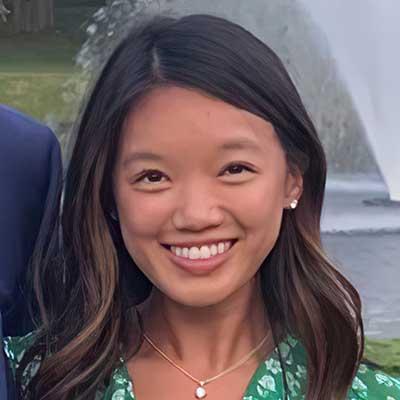
Dual BS/MS in Physician Assistant Studies
East Meadow, NY
What inspired you to pursue a career as a physician assistant?
I knew I was interested in medicine, and first looked into medical school and nursing school. Being unsure of what specialty I wanted, I was not really interested in a 7+-year investment in medical school and residency. When I learned about physician assistants and the versatility the career has, I was intrigued. I loved the idea that you could work in one specialty and if you desired, you could apply to work in a different specialty without having to go back to school. I shadowed a few PAs prior to applying directly from high school, and their autonomy as a health care provider was something I hoped to achieve one day.

What opportunities and extracurricular activities did you take advantage of during the PA program?
A few of my fellow students and I decided to create Hofstra’s Physician Assistants Club. We had events where we were able to mentor undergraduate students on how to apply to PA school and educate them on the role of a PA.
Did you find mentors among any of the faculty here?
Professor Carina Loscalzo was a mentor throughout both my undergraduate and graduate education. I was a dual degree student and developed a relationship with Professor Loscalzo in my freshman year. She supported me through scheduling courses in undergraduate studies to my struggle during a didactic year of PA school. She was someone I could look up to and ask for advice. Her consistent support even when she became director was admirable and pushed me to prevail.
Tell us about your current employment.
I have worked in the neurosurgical department at South Shore University Hospital (formally known as Southside Hospital) in Bay Shore, New York, since March of 2017, right after I graduated in December 2016. To be quite honest, I had no idea I would end up here. I knew I was interested in a surgical specialty, and I also wanted to have exposure to critical care. Luckily, with help from the Hofstra PA program, I interviewed with the hospital’s director of PA Services and the supervising PA for the department before I even graduated. They explained that a neurosurgical PA in the hospital not only scrubbed and first assisted in the operating room, but also had to manage critical neurosurgical patients in the ICU [intensive care unit] with help from the surgical ICU. They also told me that Northwell planned on investing more money into expansion of the health system and the hospital itself. I took the job and now couldn’t be happier with my choice. With the expansion, our program has now opened a neuroendovascular angiography suite along with a neurosurgical ICU. Not only have I expanded my skills as a neurosurgical PA, but I now have skills as a neurosurgical critical care PA and a neuroendovascular interventional radiology PA. My comfort in these areas has also allowed me to work per diem in a private group at various hospitals throughout Long Island.
How did your experience at Hofstra prepare you for your job search?
I felt that the preparation we had for our clinical year, especially in procedural skills during rotations, was excellent. It allowed me to develop skills that I was able to comfortably talk about on my interviews, and in various rotations I was asked for my resume prior to graduating. In addition, I distinctly remember having great help in creating our resumes and setting up interviews. We had multiple PAs and recruiters come from various health systems including Northwell, New York Presbyterian, and New York University. They helped curate interviews in different departments in different health systems, not only based on our interests but also based on where we planned on living.
Talk about your experience and the advantages of being in the dual-degree BS/MS program.
As a physician assistant who now has multiple students shadowing me, I realize the advantages I had in a dual-degree program were immeasurable. Seeing the stress from students who have to juggle post-graduate time with trying to earn money, sometimes having to go back to school to take courses in order to be eligible, obtain shadowing hours and letters of recommendation, and simply applying to multiple physician assistant schools, I absolutely am so grateful I was able to attend a dual-degree program. Not only were we able to prepare ourselves in our three years of undergraduate studies with the exact courses needed to go forward with the program, but we also were able to develop relationships with faculty and staff members of the program early on. Being able to graduate at least a year earlier than I would have if I did not go through the dual-degree program was also enticing because I was able to start my career at the age of 24.

